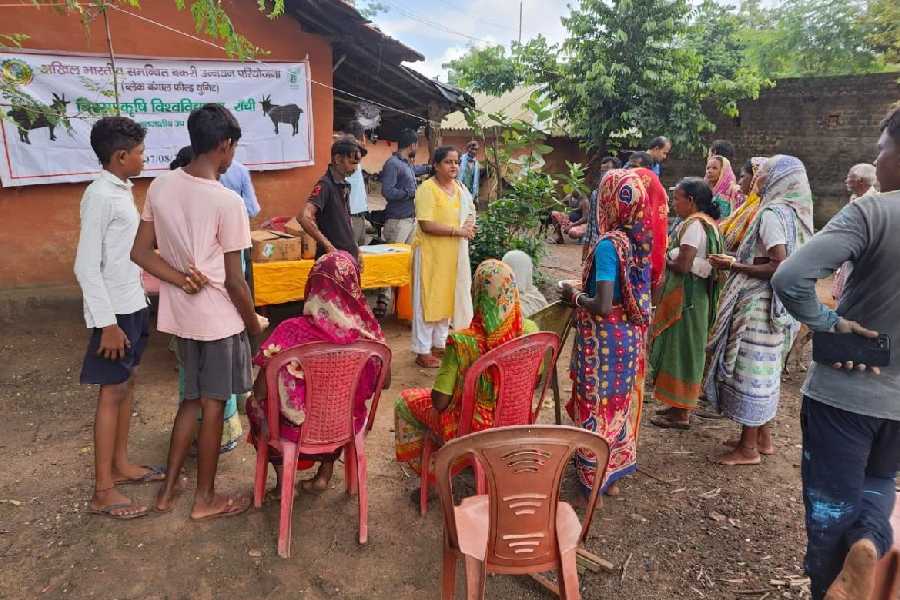Members of the All India Coordinated Research Project (AICRP) on goats from Ranchi-based Birsa Agricultural University (BAU) have claimed that Jharkhand is second in the country in terms of growth rate of goats.
The team members visited the goat breeding cluster in Barabanki near Jamshedpur in East Singhbhum district of the state on Wednesday and conducted vaccination of nearly 471 goats against PPR (Peste des petits ruminants — a viral disease caused by morbillivirus in goats causing huge morbidity and mortality) and also held health camp and distributed medicines to farmers for their ailing goats along with required consultation for disease management.
BAU animal geneticist and principal investigator of AICRP on goat, Nandini Kumari, while appraising the farmers about the importance of goat rearing said: “Jharkhand having a goat population of 9.1 million (as 2019 livestock census), ranks 8th among
Indian states in goat population registering an increase of 38.59 per cent in the last five years (as against national average of 10.14 per cent).”
“This increase in goat population in Jharkhand is second only to West Bengal which signifies the economic dependence of the Jharkhand farmers, especially tribals on goat rearing,” she said while informing the farmers on the role of a balanced diet, proper management practices like timely dipping, deworming, vaccination etc. in profitable goat rearing.
The team members advised the goat farmers to grow moringa and feed its leaves to goats as it has immense health benefits.
The principal investigator also promoted the female farmers in general and those belonging to SC-ST in particular to get registered to AICRP on goat projects by taking up goat rearing to avail the benefits provided for them.
Incidentally, ICAR (Indian Council of Agricultural Research) supported AICRP on goat, Black Bengal (field unit) under operation at BAU is mandated for selection and improvement of Black Bengal goats and socio- economic upliftment of the farmers associated with it by teaching them about scientific and innovative methods of goat rearing in four of its breeding centres namely Barabanki (East Singhbum), Tiko (Lohardaga), Palojori (Deoghar) and Chamguru ( Ranchi).
The centres are operated with the help of four enumerators who collect data from their registered farmers about the growth and reproductive traits of Black Bengal goats of the area so that appropriate strategy for improvement of Black Bengal goats by selective breeding, in consonance with the livestock breeding policy of Jharkhand, could be prepared.
“Tribal sub-plan (TSP) and schedule caste sub plan (SCSP) components are other important parts of this project making it immensely beneficial for the farmers of Jharkhand relying on goat rearing for their sustenance,” said a spokesperson of BAU.
The other members of the team comprised animal nutritionist, Dr Dinesh Kumar, veterinary gynaecologist Dr Dilip Kumar and project staff.











